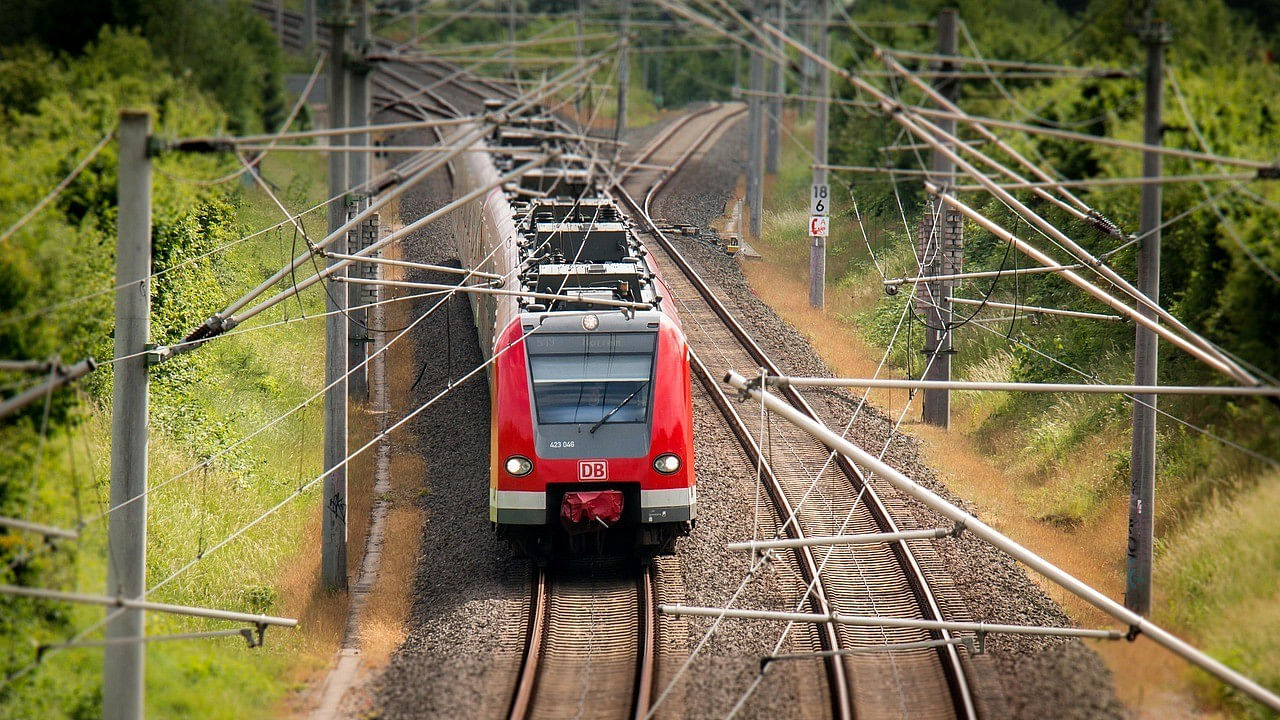
Vande Bharat train. Representational image.
Credit: Pixabay photo
Srinagar: After missing several deadlines over the past few years, the long-awaited direct train service connecting Srinagar to the rest of the country is now expected to begin operations in the next two months.
Prime Minister Narendra Modi is likely to inaugurate the Vande Bharat train connecting Kashmir to New Delhi in January, Minister of State for Railways Ravneet Singh said on Tuesday. The first Vande Bharat train on the route will pass through the Chenab Rail Bridge, the world's highest railway bridge.
Udhampur-Srinagar-Baramulla Rail Link (USBRL), a crucial project aimed at enhancing connectivity to Kashmir, has faced repeated delays due to technical challenges, including the completion of rail tracks through difficult terrain, safety concerns, and adverse weather conditions.
Last year, Railway Minister Ashwini Vaishnaw had announced that Udhampur-Banihal track, connecting Jammu with Srinagar, will be completed by December 2023, or early 2024. However, spanning 3.2 kilometers, Tunnel 1, a labyrinthine passage carved through unforgiving terrain defied the very laws of progress as the engineers had to overcome several technical as well as geological issues.
Now Ravneet Singh has given a new deadline saying the inauguration will take place in January, as per the Prime Minister's schedule. “According to railway officials, this project is expected to be completed by December this year," he told reporters.
The minister said every single aspect from the safety angle needs to be checked, and all these things are being thoroughly inspected on a large scale. He informed that the ticket prices will be between Rs 1,500 and Rs 2,100 and the train will stop in Jammu and Mata Vaishno Devi.
The Delhi to Kashmir Vande Bharat Express will have 11 AC 3-tier coaches, four AC 2-tier coaches, and one First AC coach.
Once the railway line to Srinagar is operationalised, the people will be able to directly travel to Kashmir in a train, which is expected to reduce the distance to the valley from about 20 hours currently to 13 hours.
The train service will not only benefit commuters but is also expected to boost tourism and the local economy by providing easier access to the region. It is also seen as a vital step in improving connectivity and reducing the dependence on road transport, particularly in winter when the Jammu-Srinagar national highway is frequently closed due to snow or landslides.
The USBRL project stretching over 272 km in length, features 38 tunnels, with the longest being T-49 at 12.75 km, marking it as India's lengthiest transportation tunnel.